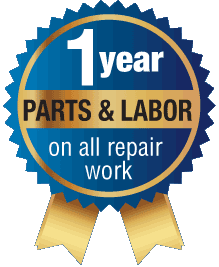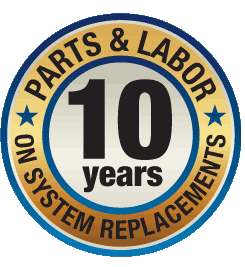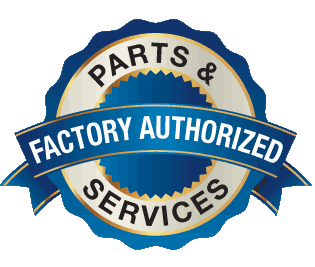Regardless of the model, type or year of your residential heating and cooling system, air filters are a key component that keeps everything running smoothly. While the importance of air filters is universal, what they are made of and how they work can vary.
It’s important to know the basics of how air filters work and what exactly they filter so that you can make the best decision to suit your HVAC needs.
Fiber filters
The most common type of air filter is the fiber filter made of layers of overlaid fiberglass or polyester backed by a metal grating. Many times, the fibers are laid in a pleated pattern to increase the open surface area that catches the dust and contaminants. Residential air systems use fiber filters because they are effective, replaceable, cheap, and sufficient for average air purifying needs.
However, fiber filters only block about 50% of the air contaminants from being recycled through your cooling system. Highly trafficked environments that need special purifying systems or people who are especially sensitive to airborne contaminants should look into more effective air filters for their home or workplace.
HEPA filters
HEPA is an acronym for High Efficiency Particulate Arrestance, and these air filters are a highly effective type of fiber filter that essentially sanitizes the air. Originally designed to remove airborne radioactive particles during WWII, HEPA filters remove up to 99.97% of air particles, blocking contaminants like pollen, dust, mold, dander, and bacteria from getting through your air system.
Due to the filter’s high level of effectiveness, many hospitals and sanitized labs use HEPA filters for their HVAC systems. If you or anyone in your home severely suffers from airborne allergens and contaminants, HEPA filters can help keep your indoor air quality cleaner.
Ionic filters
Ionic air filters, also called air ionizers, rely on static electricity to remove airborne contaminants from the air. Ionic filters produce "anions," or negatively charges particles, that attract positively charged particles from the air. Once the positive charges come in contact with the negative ones, the particles are neutralized, become too heavy to remain airborne, and fall to floor. This is why dark spots form close to the area of an ionic filter as the neutralized particles of air contaminants collect there.
Many people don’t like to use ionic filters because they produce small amounts of ozone, a poisonous chemical that can cause lung damage, asthma, and increase the risk of death.
Ionic filters are mostly found in commercial air systems (Commercial HVAC services are not currently offered by Richmond’s Air) as they are not only effective in removing ultra-fine particles, but also are very quiet because they don’t require a motor to pull air particles into the system.
Carbon filters
Carbon air filters are the most absorbent type of filter out there. Before packaging, these filters are treated with oxygen, which causes the carbon pores to open and prepares them to absorb any particles or odors, even smoke. While great for clearing gasses and odors out of the air, carbon filters don’t catch small contaminants well. As a result, carbon filters are typically not used alone, but rather combined with another filter method such as a HEPA filter.
Carbon-activated filters are often used in commercial heating and cooling systems as they are well suited for removing potent chemicals from the air.
Ultraviolet light filters
UV filters purify the air by utilizing a reaction that occurs when titanium dioxide is exposed to sunlight. The electromagnetic radiation created in the reaction destroys and breaks the bonds of the DNA in the airborne contaminants. Essentially, it’s more an eliminator than a filter. UV filters are extremely efficient at controlling mold and preventing illness and disease; however, they are not as effective when it comes to clearing dust, odors, or allergens from the air. UV filters works best paired with another type of filters that catch the larger particles.
UV filters are often found in places that require sterile environments like hospitals and laboratories, but are typically paired with a HEPA filter in those environments.
Ask a professional
Being informed on how air filters work and what exactly they filter can help you make the right decision for your home. For example, if you’re looking for a filter that will naturalize the smell of cigarette smoke and catch pet dander, just a HEPA filter or an ionized filter won’t suffice. You’ll need something like a carbon-activated HEPA filter to handle the odor and the contaminants.
Here at Richmond’s Air, we want to help in any way we can, so if you’re in the Memorial Villages or greater Houston area, contact our skilled technicians for all your HVAC needs and questions.
For more information to aid in your heating and cooling decisions, check out our blog and knowledge center.
 Read reviews
Read reviews







